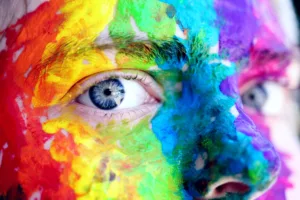LGBTQ+ rights and inclusion have become prominent topics of discussion and advocacy in recent years. The LGBTQ+ community encompasses individuals who identify as lesbian, gay, bisexual, transgender, queer, and more. Ensuring their rights and fostering an inclusive society is not only a matter of human rights but also promotes equality and social progress. In this article, we will explore the importance of LGBTQ+ rights and inclusion, the challenges faced by the community, and the ways in which society can work towards creating a more inclusive and accepting environment.
Understanding LGBTQ+ Identities:
To foster inclusion, it is essential to understand the diverse range of LGBTQ+ identities. This includes recognizing that sexual orientation and gender identity exist on a spectrum, and individuals may identify differently within these categories. Educating oneself about LGBTQ+ terminology, such as the difference between gender identity and sexual orientation, is an important step in promoting understanding and respectful dialogue.

Promoting Legal Rights:
LGBTQ+ individuals often face legal challenges and discrimination based on their sexual orientation or gender identity. Promoting LGBTQ+ rights involves advocating for legal protections against discrimination, equal access to healthcare, employment opportunities, and the right to form same-sex relationships. Recognizing and supporting legal reforms that protect LGBTQ+ individuals ensures that they can live their lives with dignity and without fear of discrimination.
Combating Stigma and Prejudice:
One of the significant challenges faced by the LGBTQ+ community is societal stigma and prejudice. Homophobia, transphobia, and other forms of discrimination can lead to exclusion, marginalization, and mental health issues. To foster inclusion, it is crucial to challenge and dismantle stereotypes, promote acceptance, and educate society about the diverse experiences and contributions of LGBTQ+ individuals. Creating safe spaces and support networks can also provide a sense of belonging and empowerment.

Ensuring Inclusive Education:
Education plays a vital role in fostering understanding, empathy, and acceptance. Inclusive education means providing accurate and age-appropriate information about LGBTQ+ issues, histories, and identities. By incorporating LGBTQ+ inclusive curricula and promoting respectful discussions in educational institutions, we can create an environment where all students feel valued and supported.
Supporting Mental Health and Well-being:
LGBTQ+ individuals often face higher rates of mental health challenges, including depression, anxiety, and suicide. These struggles are often a result of the societal pressures and discrimination they face. Promoting mental health and well-being involves creating inclusive healthcare systems that are sensitive to the unique needs of LGBTQ+ individuals and providing access to LGBTQ+ affirming mental health resources.

Advocacy and Allyship:
Advocacy and allyship are essential in creating meaningful change and promoting LGBTQ+ rights and inclusion. Allies can use their privilege and platforms to amplify LGBTQ+ voices, challenge discriminatory practices, and advocate for policy changes. Creating spaces for open dialogue and collaboration can lead to stronger partnerships between LGBTQ+ individuals and allies in the pursuit of equality.

In summary, LGBTQ+ rights and inclusion are crucial for creating a fair and just society where all individuals can live authentically and without fear of discrimination. By promoting understanding, advocating for legal protections, challenging stigma and prejudice, and fostering inclusive education and support networks, we can work towards a more inclusive and accepting society. It is our collective responsibility to ensure that LGBTQ+ individuals have equal rights, respect, and opportunities to thrive in all aspects of life.
—————————————————————————-
From Awareness to Action: The Best Approaches for Engaging in Civic Activism.
Aging with Dignity: Exploring the Value of Eldercare Support in Maintaining Quality of Life.


One reply on “Fostering Understanding: Educating for LGBTQ+ Inclusion and Empathy.”
[…] Fostering Understanding: Educating for LGBTQ+ Inclusion and Empathy. […]